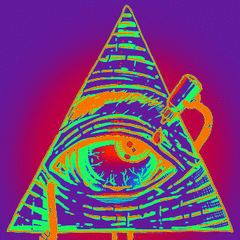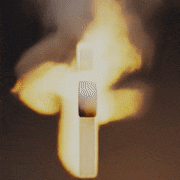-
Posts
2,705 -
Joined
-
Last visited
About straight_stewie
- Birthday May 10, 1994
Profile Information
-
Gender
Male
-
Location
North Mississippi
-
Interests
Audio, Programming, Engineering. Just a hobbyist now, unfortunately.
Recent Profile Visitors
6,604 profile views
straight_stewie's Achievements
-
One that I've always wanted to do, and came close before a family disaster stopped me doing my hobbies for a couple of years: Be warned, that this one is extremely intensive in the higher order maths: Languages definable by parallel string rewriting are proven to be equivalent to languages definable by sequential string rewriting. In a manner of speaking, this means that a generalized L-System can define any language. The project that I want to undertake is two-fold: Prove that it is possible to write a useful programming language where-in parsing happens on all tokens in "parallel" rather than sequentially. From some early experiments I conducted with plain string rewriting, this is actually fairly easy to parallelize execution on in all cases. General rules can be derived for actually running a parallel string rewriting algorithm that can handle both context free and left-right context sensitive grammars in parallel. This can speed up processing of large inputs by an incredible amount. This can generate huge amounts of user-defined patterned and possibly stochastic data quickly (enough to crash a 32GB RAM machine in about 5 seconds using just an i7-6700HQ when doing things in-memory) A mini-language for object searching and manipulation can be created, similar in some ways to LINQ or PLINQ, except that, by the very definition of a parallel string rewriting system, the language used would allow for "automatic" parallelization of the searching, creation, and manipulation of a collection of objects. L-Systems and parallel rewriting languages are definitely an open area of research in this regard. Most existing research has to do with their usefulness in describing biological growth/processes or for drawing curves. One way to see if this is an area worth exploring further is to try to convince yourself that the string rewriting rules used in L-Systems are the same as would be defined for a Chomsky grammar using BNF.
-

MarkBench Development and Feature Requests
straight_stewie replied to AdamFromLTT's topic in LTT Releases
One big feature that I've never seen in another (free) kit would be test suite scripting. That is to say, if I would like to compare runs of multiples of the same test to see score trends, I currently have to manually record information. It would be nice to have a tool that would allow me to say something like: for num_runs in range(0, 10): result = run_test() result.append_to_file(myPath) Or whatever it might look like. This helps in finding relatively high, but still very stable, daily driver overclocks. Results could include everything from benchmark scores to various machine temps as well. -
Would you like to have control of your RGB and/or fan speed on an individual or group of fans level?
-

Everything is a file is maby not always the best
straight_stewie commented on Herr.Hoefkens's blog entry in My Take On the State of Computing
Windows works the same way, it's just hidden better. Everything is always a file, whether it's presented that way or not. Exposing the "everything is a file" interface to the user can have several benefits. It's significantly easier to write an application that pretends to be a mouse: All you have to do is secure a file for a mouse and write instructions to it. And that's just one example. This is derived from how things work on silicon: All you can really do is write to an address and read from an address, sometimes with side effects (operations). And that's it. That applies whether you are writing to a register, memory, or storage. All you can ever do is write to and read from an address. Your argument against hardcoding things like filepaths is really a different argument altogether, one which basically everyone agrees with, with one caveat: They agree with it for application development. -
Viewing things at 4k resolution on a sanely sized TV isn't what the switch to 4k was supposed to do. A higher resolution enables more accurate edge detection, which improves video smoothing, image sharpening, and certain parts of HDR. It also enables you to watch a larger TV in a smaller space.
-
I mean, you're not wrong, but... That's kind of not the point of "one-liners".
-
Voice reproduction is a very active area of research. The tutorial you will need to do a good job of this (indistinguishable from real life) essentially amounts to graduate or post graduate studies in the field.
-
Well, one could argue that the GPL is not sane unless you are in the universe of GNU tools.
-
The easiest is just python with gpiozero. It comes baked into RaspberryPi OS. An arduino is somewhat better for many tasks (including this one). It is also orders of magnitude more difficult for what you are trying to do. Just to be clear, @Deflowerer is right, a raspberry pi running a full blown OS is overkill for what you are likely trying to do. But he's wrong in the sense that it sets you up for failure. @Deflowerer forgot to account for the effort required in spinning up new knowledge. Real life engineering is about balancing costs with desired end results. Having to learn a new language (and a host of other things that go along with WiFi based networking while running essentially baremetal) is extremely expensive in terms of time and effort. It is less than 100 lines in python to make probably one of the nicest Commercial-Off-The-Shelf toaster interfaces in existence. Since OP is working on a publicly announced project that is part of a long standing tradition, they cannot fail or be partially complete. So my vote is to take the easiest way, because it costs you nothing here: Use a raspberryPi loaded with RaspberryPi OS, and write your code in python with the gpiozero library.
-
If I'm following this correctly, that just prints all numbers b <= n <= a where n % b = 0. In plain English, you are looking to find all multiples of b between b and a inclusive. What you should do is find the largest multiple of b less than a. We can do this by writing: int largestMultiple = div(a, b) * b; Then you would just continually subtract b from largestMultiple until you are equal to or less than b, printing as you go along. This is about as efficient as it gets, because it only requires as many iterations as there are multiples of b such that b <= multiple <= a.
-

10600K Overclocking & Temps
straight_stewie replied to 5h0ckw4v3's topic in CPUs, Motherboards, and Memory
Those aren't terrible temperatures, but there's room for improvement. If you find it difficult to understand, you can just leave it alone, and if those are really the peak temperatures, you should be fine for many years still. -
There were two different allegations: One that alleged that two different products from two different companies (admittedly, owned by the same parent company) sometimes accidentally traded with each other. The allegation admits that these were accounted for and shown to the public. The other allegation is that someone was also manually engaging in wash sales to bolster the numbers. The second one is a serious crime with serious penalties. The first one is a flimsy allegation, and if it holds up , a whole lot of firms are going to have to do some very serious restructuring (why would it be legal for that to happen in forex, but not crypto?) But that's how these court proceedings work: Prosecutors looking to make an example will charge someone with every single little thing that looks like it might be possible. Then the first rounds in court are about the defense getting the majority of those charges thrown out, then we finally get to deal with the real and serious accusations, then the defense will start appealing the decision. That's how it works, every single time.
-
This is one is a stretch. Mostly because, by the governments own admission, Coinbase did in fact publish the information about them trading to themselves. If various traders or agencies were too dumb to take the volume/liquidity net of those disclosures, that's not Coinbase fault. This is also flimsy because, since Coinbase did disclose that information to the public, the government would have to prove that they took active steps to make it's disclosures difficult to find or read with the express intent of misleading the market. However, the rest of the accusations are not nearly as flimsy. But, on the other hand, is this really a case of fair treatment under the law, or is this the beginning of the crypto crackdown we've been waiting on? If the government is to begin accepting crypto-currencies as valid currencies (a requirement of regulating and taxing them), then they will eventually have to start figuring out how our existing body of law applies, and that process usually involves a crackdown.
-

What tech do you find.... Annoying?
straight_stewie replied to Beerzerker's topic in General Discussion
Facsimile machines have a place. They can be made to be much more secure than email, and automatically generate paper copies at all ends. I hate most driver assist technologies. If the car can't drive itself, I don't want it taking control.

















